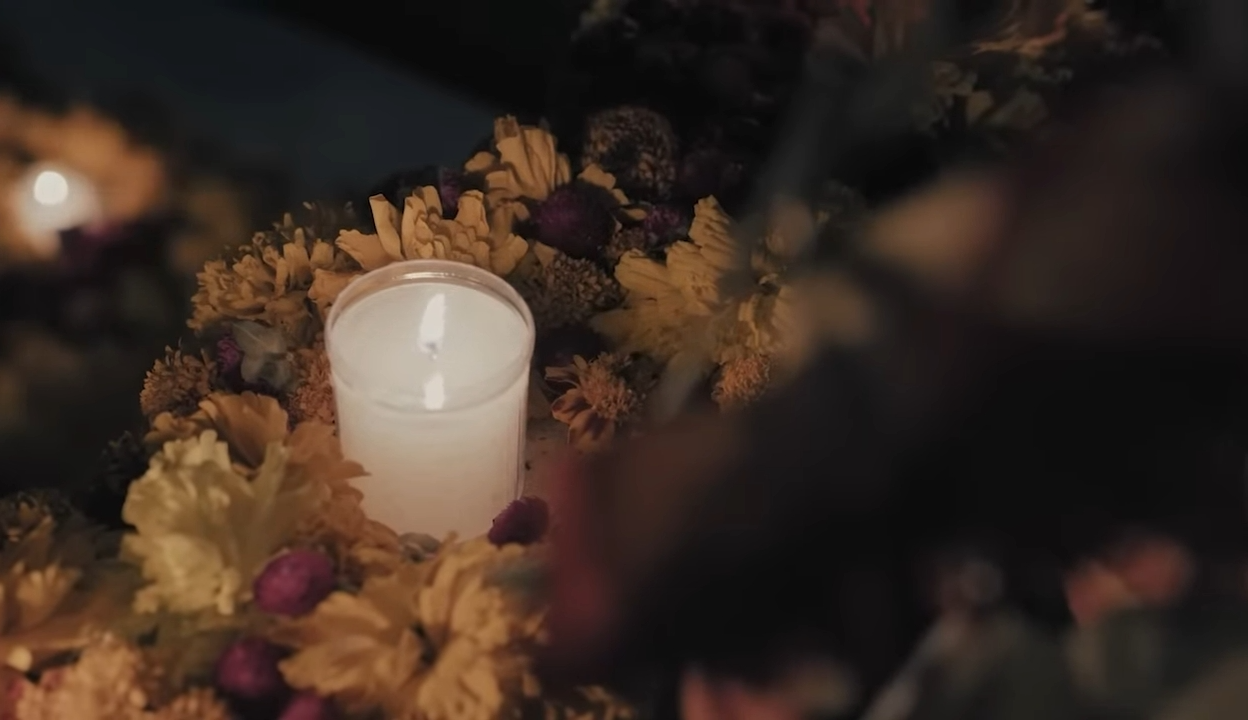Although this may simplify the issue, it is also a way for us to approach death, to understand and accept it as an essential part of life. This opens up a range of questions and different perspectives on death, and each person may think about it in their own way. This topic is very rich and has many different aspects to explore.
1. Exploration:

In this article, we can only focus on certain aspects and hope that readers will expand on this topic. Learning about death from ancient religions, philosophies, or cultural beliefs of the ancient Vietnamese people all aim to help us understand death better and the lessons it brings. Philosophies about death often view it as a natural part of life, nothing to fear, as mentioned by many famous philosophers such as Socrates, Zeno, Marcus Aurelius, and Epicurus. They believe that accepting death is a sign of wisdom and being willing to face it is part of spiritual maturity. Modern philosophers like Søren Kierkegaard also emphasize that death provides an opportunity for us to think about how we live and decide on the goals of our lives. In Confucian philosophy, there is a belief that both life and death have meaning and importance in the continuity of human destiny.
Although human life is limited, cultivation, education, and ethics can make the spirit eternal and immortal. If throughout our lives, we know to strive and give our best in everything, then when it is time to leave, perhaps we will depart from this world gently, peacefully, and without regrets. In contrast to this view, Taoism presents the principle that life and death are due to the transformation of energy according to natural laws. The decrease of energy marks death, while its increase is life. Both Confucianism and Taoism emphasize looking lightly at death and focusing on life, but without understanding the nature of both deeply and not contemplating death deeply while alive, we may be considered as avoiding our responsibility with death.
Buddhism shares a similar view with philosophical views on death, that death is inevitable and contemplating it deeply can help people live a fulfilling life. Buddhism also believes that death is not an absolute end but a beginning for another life in the cycle of reincarnation. This view contrasts with the Christian belief, which believes that death only occurs once and then each soul will continue its spiritual journey, with some being rewarded with eternal joy in heaven, while sinners will endure eternal suffering in hell.
2. Religious culture:

In the religious culture of Vietnam, these views are often accepted and become a spiritual support for many people when they have to face death. However, not only in Vietnam, but in many other countries, the belief in the existence of the afterlife and the immortal soul is an essential part of religious faith, providing comfort and hope for people facing the inevitability of death.
Research on the Vietnamese people's beliefs about death through proverbs has concluded that in the face of the end of life, the Vietnamese often show calmness and tranquility rather than fear. This is reflected in the expressions in poems and proverbs, such as "passing away to the ripe streams," "disappearing into the realm of shadows," "returning to the heavens and earth," while also reflecting their attitude towards death as a natural part of life, a journey through life. Nguyen Kien Giang, author of the book "Seeking the Vietnamese Nature," believes that each ethnic group has its own beliefs about death, and in Vietnamese culture, death is not the end but a transition from this state of life to another. According to this thinking, the realm of shadows is not a distant place, but a permanent reality of human beings.
Researchers like Professor Tran Ngoc also emphasize that the Vietnamese believe that after death, the soul will return to the other world. Therefore, they are often calm and at peace when facing death. Even in the minds of ancient Vietnamese people, death does not mark the end but a new beginning, so birthdays are often not as important as death anniversaries.
3. Religious beliefs:

On the question of a good death, philosophy, religion, and religious culture in Vietnam all agree that death is not to be feared and is an essential part of the universe. However, accepting death gently or not depends on the mindset of each person. Practitioners of thanatology believe that by understanding the value of life and reflecting on their goals, they can accept death more gently. Religious followers may believe that following the teachings of ethics and religion will lead to a beautiful death and a life thereafter worth cherishing.
Therefore, one approach to consider a healthy death is through the perspective of the life one has lived. The book "Destination of Life" by author Dang Hoang Giang reflects this by telling the stories of those facing death. A similar assessment is made by Professor Dr. Tran Ngoc, who believes that patients in the final stages often no longer fear death, but are more concerned about what they leave behind, such as the pain of loved ones or financial issues. A good death also includes not causing mental or physical pain to the patient, while meeting their desires for care and treatment. It also helps them practice personal spiritual practices and fulfill their wishes in life.
The issue is how to have a good death, and the answer can be found in understanding life. A good life is a happy and meaningful life. But how to achieve true happiness? A 75-year study from Harvard Medical School has shown that the quality of relationships is the most important factor in making a person happy. This study began in 1938 with 724 people and continued to follow them as they married and had children. Researchers found that over time, the quality of relationships had the greatest impact on their physical and mental health.
4. Conclusion:

The most important factor in having a long and happy life is not money, fame, intelligence, or even genes, but the quality of the relationships one possesses. Research shows that individuals with strong social networks are less likely to suffer from diseases such as diabetes, arthritis, cognitive decline, or other chronic conditions. The hypothesis is that good relationships are the optimal way to reduce stress. If something happens that makes you sad, you may feel your body tense up, your heart rate increase, excessive anxiety, and fall into depression. This is when the body switches to fight or flight mode, known as acute stress response. Science also shows that isolated individuals or those in toxic relationships cannot escape stress. Eventually, the body becomes stiff and negatively affects health, leading to serious issues such as heart disease, stroke, and depression.
Harvard's research also shows that relationships are not limited to spouses and family but can also be friends, colleagues, or even neighbors. These relationships can bring happiness and to maintain them, you need to learn how to nurture them.
This study provides an important insight into seeking and nurturing happiness in daily life. However, facing suffering is part of life. While no one wants life to be full of pain and sadness, it is also impossible to avoid pain. If you cannot avoid it, you can choose to face it and choose how to make that pain bring a better life. As Mark Manson, author of "The Subtle Art of Not Giving a F*ck," shared, the pain each person chooses to carry often reflects what is most important or the idea of life they desire. This idea suggests that everything you do will one day become difficult and you cannot avoid pain to achieve what you want.
Within 3 years, Victor Frank, a Jewish prisoner of Nazi Germany, had to endure many difficulties and pain. What is special is that Frank realized that, just as how we choose to face pain, the goals in life also play a crucial role in overcoming challenges. Despite unfavorable circumstances, Frank still held onto his belief in his goals, such as reuniting with his family, learning from experiences in concentration camps, and admiring the beauty of nature. Focusing on goals helped Frank overcome pain and find joy in living.
Frank also realized that the meaning of life is a relative concept, formed through daily experiences. For Frank, joy and the meaning of life exist in even the simplest moments, such as when he could rest at noon, return to the camp, or admire the sunset on the snowy mountains.
Everyone faces pain in different ways, but having a goal in life helps them find meaning and joy. Facing and overcoming pain helps them develop and discover their own values of life. Life is a journey full of contradictions, and we need to accept both joy and pain to understand and appreciate it more.
However, those contradictions are opportunities to help us understand ourselves better. The most important thing to prepare for a good death is to understand the meaning of life you want to create and take appropriate steps to prepare. It is about understanding both joy and pain in life, to be able to face every situation freely and accept everything that life brings. This perspective raises the question: what is a good death, and what aspects of a good life are related to life and death?
